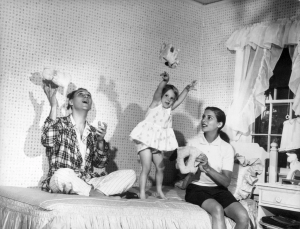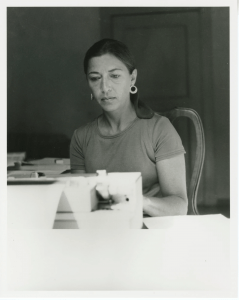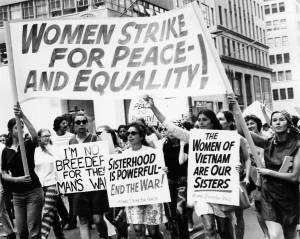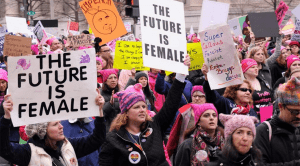This year has had a mind boggling amount of events happen, and it’s only the beginning of October. So many of these events have affected people personally. From the worldwide pandemic, the Black Lives Matter movement, and the wildfires currently ravaging California, almost everyone has had something that hits close to home. For me, it was the death of Ruth Bader Ginsburg. When I looked at the notification on my phone alerting me of her death, I immediately felt my stomach drop. I was crushed because she was a feminist icon for me and so many other young women, but I mostly thought of what could happen to women’s rights now that she’s gone. RBG was known for upholding laws that protect women, from: Roe v. Wade defending women’s access to abortion, the Equal Credit Opportunity Act granting women banking independence, United States v. Virginia ending women’s discrimination from schools, and many other groundbreaking laws. Most young people know Ruth Bader Ginsburg as the strong Justice who stands for equality. But she has been fighting for equality long before she joined the Supreme Court in 1993. With an opening in the increasingly conservative Supreme Court, the rights that RBG and the activists of the Women’s Liberation Movement fought for are in jeopardy.
The sexism that Ruth Bader Ginsburg experienced throughout her young life was her motivation to use her knowledge and strength to fight for women’s equality. Ruth Bader Ginsburg attended Cornell University, Harvard Law and finally Columbia Law where she graduated in 1959 at the top of her class. Going to college, Ruth Bader Ginsburg endured gender discrimination from all angles. There were times where she wasn’t able to enter the Harvard library because females weren’t allowed. While enrolled at Harvard Law as one of nine other female students, Ginsburg attended a dinner party where she was asked by the Dean, “Why are you at Harvard Law School, taking the place of a man?”(Lithwick, 2020) Despite this blatant intolerance, RBG managed to finish her education while also caring for her infant daughter and husband who was diagnosed with testicular cancer. Regardless of Ruth Bader Ginsburg’s impressive qualifications, she struggled to find work because of her gender. Ginsburg applied to twelve law firms and was denied a position from each. Eventually becoming a law professor at Rutgers, Ginsburg was paid less than her male colleagues because she was a woman whose husband had a well paying job. These discriminatory instances along with biased feminist ideals that she grew up around inspired Ruth Bader Ginsburg to co-found the Women’s Rights Project at the American Civil Liberties Union in 1972.
RBG with her family; at the ACLU
While at the Women’s Rights Project, Ginsburg dedicated her law degree to overturning instances of gender bias. She would fight over three hundred cases, six of them in front of the all-male Supreme Court that she would one day join. Her goal was to create the equality that these laws lacked. Most of them were built off negative stereotypes that encouraged the prevailing assumption that women were dependent on men. Professor at Georgetown University Law School David Cole said, “…she set out to prove that those kinds of laws in fact harmed women by contributing to a stereotyped view of their role,” (Lewis, 1993) Some of Ruth and her team’s greatest accomplishments include: ensuring that men and women receive equal treatment in property disputes, deeming it illegitimate to apply different guidelines towards military spousal benefits for men and women, pushing for widowers to obtain Social Security benefits after a spouse’s death, ensuring women the opportunity to get credit cards and loans in their own name, and recognizing pregnancy discrimination as a form of sex discrimination.
Average women who couldn’t participate through legal action like Ruth Bader Ginsburg in the 1970s showed their support through protest. The Women’s Liberation Movement was the public move to fight for equality through large marches to enact the Equal Rights Amendment. They fought for free childcare, access to abortion, and equal opportunities in education and employment. Some activists often referred to from this “Second Wave of Feminism” are Gloria Steinem, Betty Friedan, Angela Davis, Alice Walker, Bella Abzug among many other brave women. Women from all walks of life were able to come together to participate in these protests. “… women allied behind the cause of gender equality, even as they often split over questions of race, class, and sexual orientation. The participants’ diverse identities, goals, and anger over their treatment as women sometimes produced conflict and dissent, but they also created a more multifaceted women’s movement than is often remembered—one that has paved the way for the surge in women’s activism today.” (Seidman, 2016) Through protests like these and legal fights from people like Ruth Bader Ginsburg, women were finally gaining basic rights that were owed to them.
Women’s liberation movement, 1971; Women’s March, 2019
For decades, Ruth Bader Ginsburg has fought for equality. She continued to fight until her last days on the Supreme Court. In recent years she has upheld such impactful laws as Roe v. Wade, the Marriage Equality Act, and the Affordable Care Act. With Ruth Bader Ginsburg gone, there are many people like myself feeling unsettled about our future and the longevity of these rights. With RBG’s death and the possible nomination of Amy Coney Barrett, the Supreme Court is moving towards a conservative majority, making the possibility of repealing such laws closer to reality. It’s upsetting that the death of one person could mean millions of people may lose basic human rights. Just like the Women’s Liberation Movement, the American People should fight for their rights through whatever means necessary, like marches. These strong women were pioneers in women’s rights and young feminists today owe it to them to uphold what they so bravely fought for. The last few years there have been Women’s Marches across America where people come together to defend female liberties. This organization is hosting a march next week to stand up for Ruth Bader Ginsburg and the rights she gave us. Whether it’s through educating others, volunteering, donating to organizations or protesting in marches, everyone should do their part in defending our basic human rights.
*For those interested in getting involved, there will be a Women’s March in many cities across the country next Saturday, October, 17th! Virtual and in person! More information can be found at https://map.womensmarch.com/?eventType=oct-17-marc*
*There’s an interesting Ruth Bader Ginsburg documentary called “RBG” and a really great mini-series about the Women’s Liberation Movement called “Mrs. America” both on Hulu if anybody’s interested!*
Sources
- Lewis, N. (1993, June 15). THE SUPREME COURT: Woman in the News; Rejected as a Clerk, Chosen as a Justice: Ruth Joan Bader Ginsburg. Retrieved October 06, 2020, from https://www.nytimes.com/1993/06/15/us/supreme-court-woman-rejected-clerk-chosen-justice-ruth-joan-bader-ginsburg.html
- Tribute: The Legacy of Ruth Bader Ginsburg and WRP Staff. (n.d.). Retrieved October 06, 2020, from https://www.aclu.org/other/tribute-legacy-ruth-bader-ginsburg-and-wrp-staff
- Seidman, S., & Seidman, S. (2019, August 26). Reconsidering Feminist Waves through the Strike for Women’s Equality March. Retrieved October 07, 2020, from https://www.mcny.org/story/reconsidering-feminist-waves-through-strike-womens-equality-march?gclid=CjwKCAjwq_D7BRADEiwAVMDdHknPas_OkCVhQiLSF_cj8tyaG7L2V_7FuCq6oCsaZeQohFHJxH42ohoCZ6EQAvD_BwE





Hi Kailey,
What a moving post to read. I, too, felt my stomach drop upon hearing the news of RBG. She led an amazing life full of morality, decency, and overall kindness. As Trump continues to push for the confirmation of Justice Coney Barrett, my heart continues to sink. Thank you for writing this post in her memory and pointing out not only her resilience with personal discrimination, but also her motivation to ensure a fairer and more equal world for all. She united many women and allies as you pointed out, and it is heartbreaking that upon her death our nation has remained more divided than ever. As the pandemic continues, I can only hope for positivity from here, but it doesn’t look promising with the highly politicized court we have. You did a phenomenal job memorializing her and the legacy she leaves for us.
Best,
Laura
Hello Kailey,
That was such an interesting post to read and very detailed! I never knew just how much Ruth Bader Ginsburg had overcome and accomplished throughout her life and career. It was also amazing reading about just how far women’s rights have come in the past few decades and I know she had a lot to do with that. It’s truly sad that she’s gone but I know she’ll live on as an inspiration for so many people. Hopefully Amy Coney Barrett, or whoever ends up replacing her seat, can continue her legacy.
Best regards,
Dakota Eagen